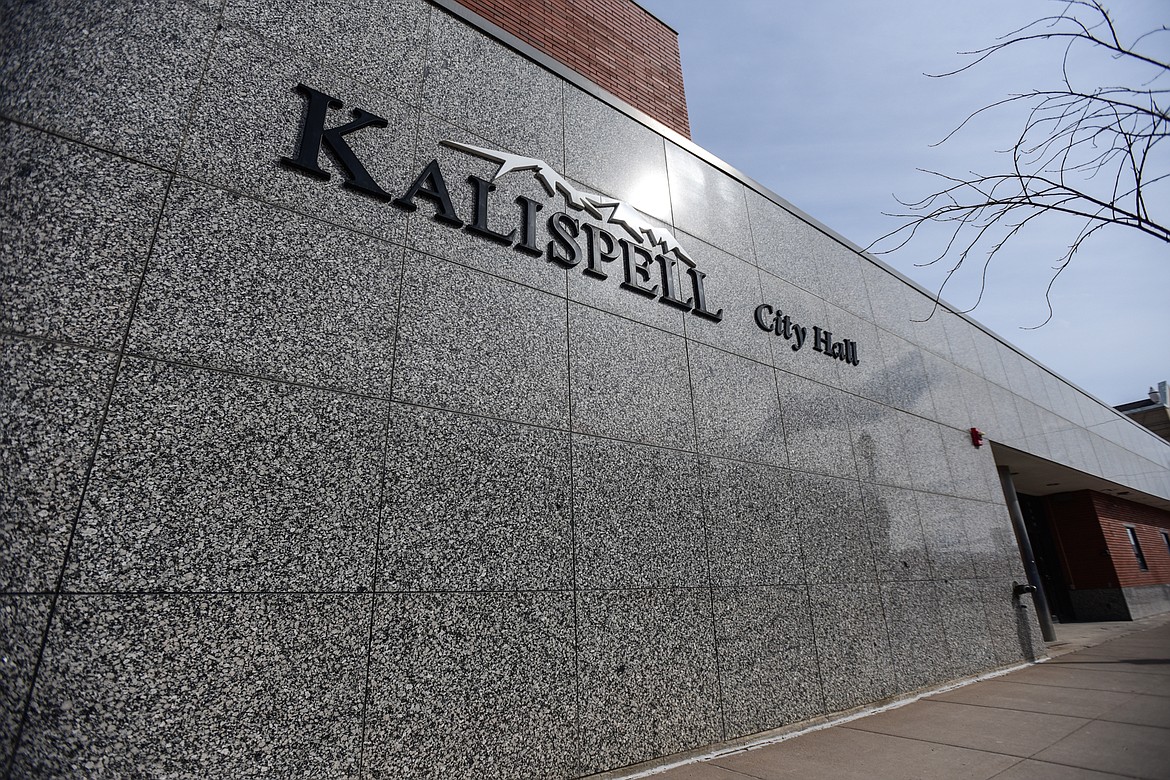Kalispell City Council still waiting for answers on annulled elections
Kalispell City Council on Monday peppered city staff with questions about next steps following a judge’s decision to annul the elections of two of its members.
The sticking point is whether the annulment of the November municipal election for wards 1 and 2, which resulted in victories for incumbents Kari Gabriel and Sam Nunnally, created vacancies on Council. County officials sought the annulment in district court after realizing that incorrect ballots were distributed in Kalispell.
After calling the Feb. 26 work session to order, Mayor Mark Johnson preempted roll call by asking City Manager Doug Russell to address the election snafu.
“We’re still in limbo as to what the next steps are,” Russell said.
City attorneys are investigating whether the Feb. 16 ruling, made by Judge Robert Allison, removes the two members until another election is held or if Council may fill the seats by appointment until the next election as outlined in state law providing for vacancies.
Russell said that the city’s attorneys were working with the Flathead County Attorney’s Office to receive a clear-cut answer on whether the ruling created vacancies, and if so, whether Council could reappoint Gabriel and Nunnally.
Russell anticipated the possibility of holding a new election, saying the city would need to know the soonest it could hold one.
As to whether any Council action might accidentally violate a future court decision, Russell said the city is in a novel situation and “any court would take that into consideration” as long as Gabriel and Nunnally recuse themselves from votes in the meantime.
A clerical error resulted in the Flathead County Elections Department distributing ballots based on outdated ward maps of Kalispell last year. Although four Council seats were up for election, only two of the races featured enough erroneous ballots to potentially alter the outcome.
COUNCIL ALSO took up solid waste with Public Works Director Susie Turner and consultant Scott Pasternak. The pair’s follow-up presentation asked Council which ideas the department should pursue in addressing projected budget shortfalls and the growing demand on services in the city.
A survey on city services, conducted for a month and ending on Feb. 14, gathered opinions from 451 residents and 35 business owners in an effort to gauge expectations and openness to future change in garbage collection.
Pasternak noted that only 10% of respondents were “very receptive” to the idea of limiting the amount of bulky refuse placed in alleys and only 10% were “very receptive” to the idea of reducing the frequency of collecting bulky items from alleys. About 58% expected their cost of services to stay the same if the city began charging rates for collection that matched customer use, with 24% expecting an increase of $15, 7% expecting an increase of $20 and 11% expecting an increase of $25.
“A lot of residents in my ward are on a fixed income,” said Councilor Ryan Hunter. “We don’t want to affect rates in a big way.”
On the question of whether businesses should pay more for waste removal to offset the cost on residential users, Pasternak said Bozeman employs a similar model.
Councilor Sid Daoud expressed skepticism with the concept, calling it a “shell game” to shift costs. It could return on taxpayers in the form of higher prices or lower wages, he said.
“You don’t really know what the ramifications are,” Daoud warned.
Council President Chad Graham voiced discomfort with “using businesses as a piggy bank to offset the waste people put out there.”
Hunter sought middle ground, pushing for a Pay-As-You-Throw system with users subscribing at a cost that meets their specific needs with individual trash carts of various sizes.
“Consumers have a responsibility to reduce waste,” Hunter said, adding that such responsibility is shared on the business side. “We’re often not given an option in the marketplace to buy things with less waste.”
Councilor Jed Fisher opposed any reduction of service that could lead to trash piling up in public view. He also raised the issue of how to enforce restrictions on bulky items.
COUNCIL ALSO debated public interest in a recycling program, with data showing more than half of survey respondents willing to pay some additional amount between $100 and $200 a year for it.
Councilors Jessica Dahlman and Graham both pondered the obstacles to a successful recycling program, including the lack of local processing facilities and the inherent waste involved in hauling recyclables from bins in Kalispell to facilities in Spokane.
Gabriel supported recycling, stating that workarounds are always possible.
The mayor reminded Council that its goal is to set a base level of service, with partnerships arising from businesses themselves. He cautioned that if a program is built around a private business that fails or leaves town, “We’re left scrambling to cover that.”
Despite the obstacles, Dahlman supported recycling.
“We talk about the landfill having many more years — those years are going to get here sooner than we think,” she said. “Now is the time to start thinking about it.”
Russell offered to revisit the matter at a later date in order to use funds for establishing the master plan more efficiently.
Turner told Council that the discussion is necessary, but agreed it would be most beneficial to develop the short term rate schedule “for the policies we are developing tonight.”
Reporter Carl Foster can be reached at 758-4407 or cfoster@dailyinterlake.com.


